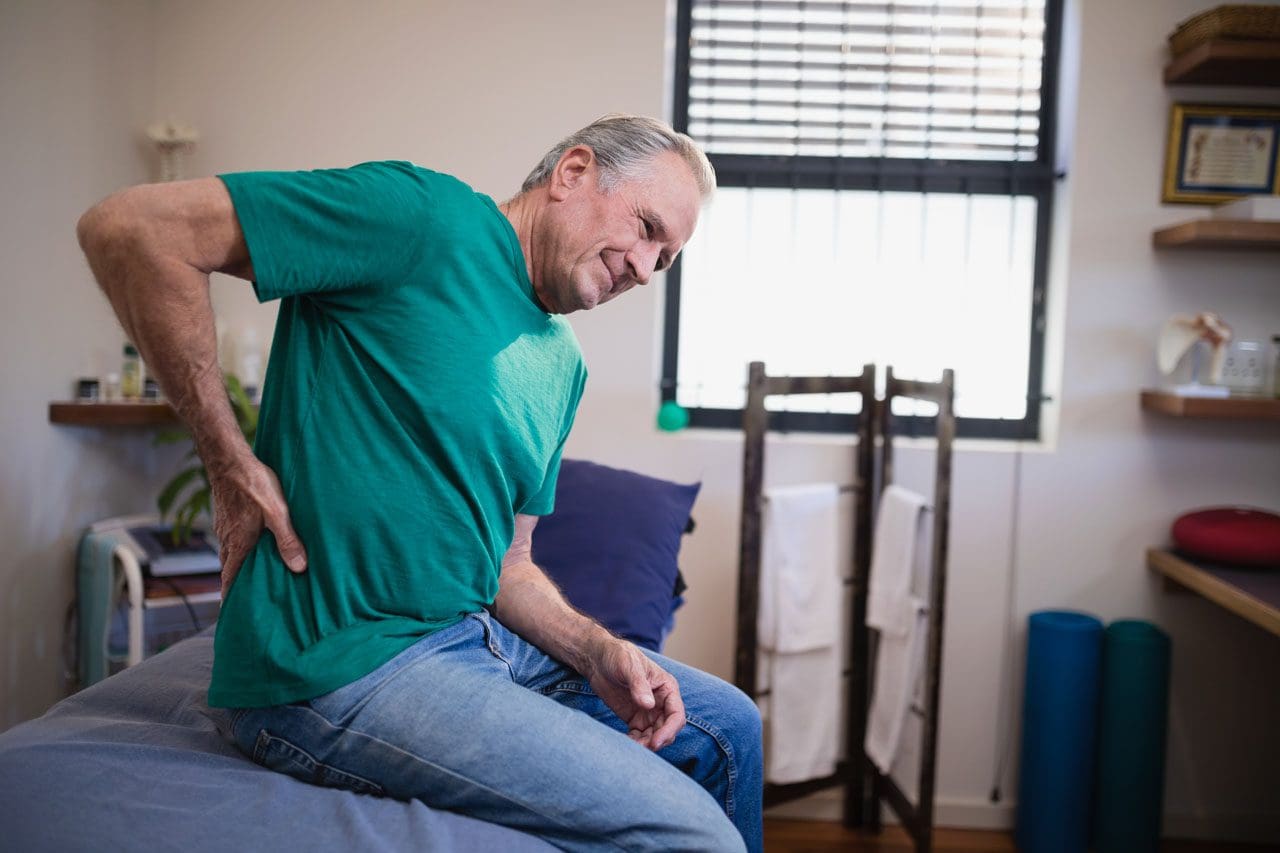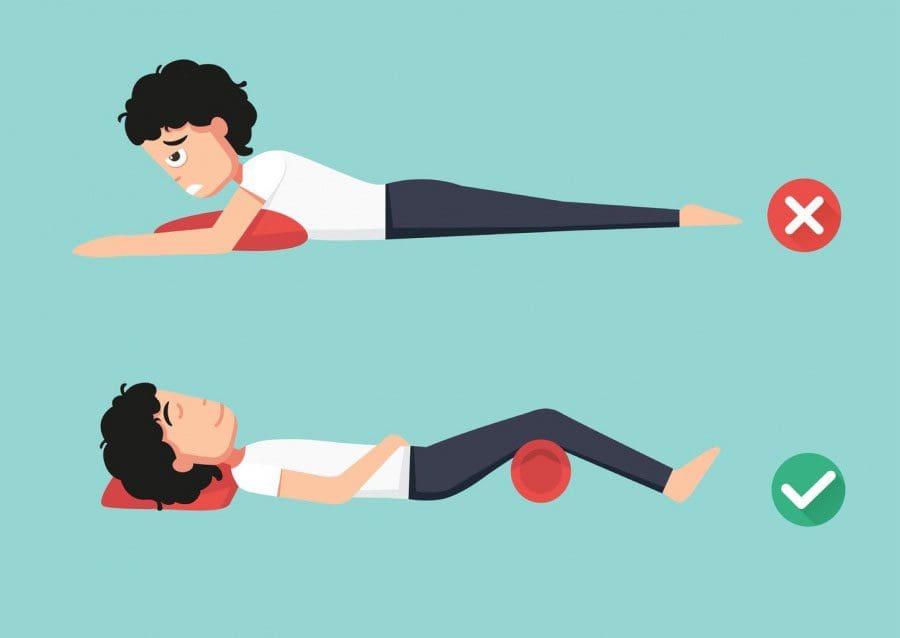Everyone needs to take care of their back/spine because it is what holds us up as long as we keep it straight and strong. Strengthening the core can help prevent a weak and misaligned spine from getting worse and helps to eliminate pain. Back safety should be a priority, as it affects all aspects of your life. Not only are you protecting your back, but you are preventing future injury. From the time you wake up until bedtime, here are some tips for changes in sleeping position and getting in and out of a car. We all need to pay attention to proper body positioning and mechanics, which will pay off in the long run.

Table of Contents
Getting In and Out of Bed
This is usually the time when the pain starts and can make the rest of the day miserable. Here are a few tips that can help.
- Lean forward from your hips, not from your back.
- Try not to arch your back.
- Push your upper body off the bed with your elbows and hands and swing both legs to the floor.
- Keep your back straight.
- Try not to bend at the waist.

Position for Sleeping
Sleep is very important. Finding a comfortable position while sleeping can be tough, especially with back pain. Using quality pillows in the right way can help provide comfort and support for your neck and back and keep you asleep.
- Sleeping on your back is optimal, but you should bend your legs and place a pillow under your knees, allowing optimal blood circulation.
- Do not sleep on your stomach, as this places pressure on the pelvis and the lower back because there is no support underneath. If you must sleep like this, keep it for a short while before changing position and place a pillow or two underneath for support.
- A firm mattress can help keep your spine in line. But talk to a doctor or chiropractor to find out what style of mattress would benefit your back.
- Rotate your mattress every three months and flip it over twice a year.

Take Care When Entering/Exiting an Automobile
Getting in and out of a car can be a tough challenge when dealing with back pain. Here are a few tips to help.
- When getting in or out, move the seat back as far as it goes, and hold onto the side of the car, the back of the seat, or the dashboard for support when lifting yourself out or when easing into the seat.
- Bend at the knees, not the back, and avoid twisting and turning to reach for objects, etc.
- The use of proper body mechanics keeps the muscles working properly.
- Use both arms and legs when raising and lowering yourself in and out of the seat.
- Keep your body aligned and only turn your body as much as needed.
The key is to be aware of your posture and safety awareness.
Daily living, including sports and household chores, should be done with overall and spinal safety in mind.
Whatever positions work for you and your regular activities, bending, retrieving, lifting, and carrying objects, using correct techniques combined with proper posture, will take care of your neck and back.
Chronic Pain Relief
NCBI Resources
Chiropractic can take care of your spine, which means it is good for your overall health. While many think its only purpose is to treat back pain, chiropractic focuses on total body wellness. All too often, problems within the body are interrelated. For instance, back pain could result from an altered gait due to an ankle injury. A misaligned neck could cause headaches due to awkward sleep positions (or even the wrong pillow).
Post Disclaimer
Professional Scope of Practice *
The information on this blog site is not intended to replace a one-on-one relationship with a qualified healthcare professional or licensed physician and is not medical advice. We encourage you to make healthcare decisions based on your research and partnership with a qualified healthcare professional.
Blog Information & Scope Discussions
Welcome to El Paso's Premier Wellness and Injury Care Clinic & Wellness Blog, where Dr. Alex Jimenez, DC, FNP-C, a board-certified Family Practice Nurse Practitioner (FNP-BC) and Chiropractor (DC), presents insights on how our team is dedicated to holistic healing and personalized care. Our practice aligns with evidence-based treatment protocols inspired by integrative medicine principles, similar to those found on this site and our family practice-based chiromed.com site, focusing on restoring health naturally for patients of all ages.
Our areas of chiropractic practice include Wellness & Nutrition, Chronic Pain, Personal Injury, Auto Accident Care, Work Injuries, Back Injury, Low Back Pain, Neck Pain, Migraine Headaches, Sports Injuries, Severe Sciatica, Scoliosis, Complex Herniated Discs, Fibromyalgia, Chronic Pain, Complex Injuries, Stress Management, Functional Medicine Treatments, and in-scope care protocols.
Our information scope is limited to chiropractic, musculoskeletal, physical medicine, wellness, contributing etiological viscerosomatic disturbances within clinical presentations, associated somato-visceral reflex clinical dynamics, subluxation complexes, sensitive health issues, and functional medicine articles, topics, and discussions.
We provide and present clinical collaboration with specialists from various disciplines. Each specialist is governed by their professional scope of practice and their jurisdiction of licensure. We use functional health & wellness protocols to treat and support care for the injuries or disorders of the musculoskeletal system.
Our videos, posts, topics, subjects, and insights cover clinical matters and issues that relate to and directly or indirectly support our clinical scope of practice.*
Our office has made a reasonable effort to provide supportive citations and has identified relevant research studies that support our posts. We provide copies of supporting research studies available to regulatory boards and the public upon request.
We understand that we cover matters that require an additional explanation of how they may assist in a particular care plan or treatment protocol; therefore, to discuss the subject matter above further, please feel free to ask Dr. Alex Jimenez, DC, APRN, FNP-BC, or contact us at 915-850-0900.
We are here to help you and your family.
Blessings
Dr. Alex Jimenez DC, MSACP, APRN, FNP-BC*, CCST, IFMCP, CFMP, ATN
email: coach@elpasofunctionalmedicine.com
Licensed as a Doctor of Chiropractic (DC) in Texas & New Mexico*
Texas DC License # TX5807
New Mexico DC License # NM-DC2182
Licensed as a Registered Nurse (RN*) in Texas & Multistate
Texas RN License # 1191402
ANCC FNP-BC: Board Certified Nurse Practitioner*
Compact Status: Multi-State License: Authorized to Practice in 40 States*
Graduate with Honors: ICHS: MSN-FNP (Family Nurse Practitioner Program)
Degree Granted. Master's in Family Practice MSN Diploma (Cum Laude)
Dr. Alex Jimenez, DC, APRN, FNP-BC*, CFMP, IFMCP, ATN, CCST
My Digital Business Card


